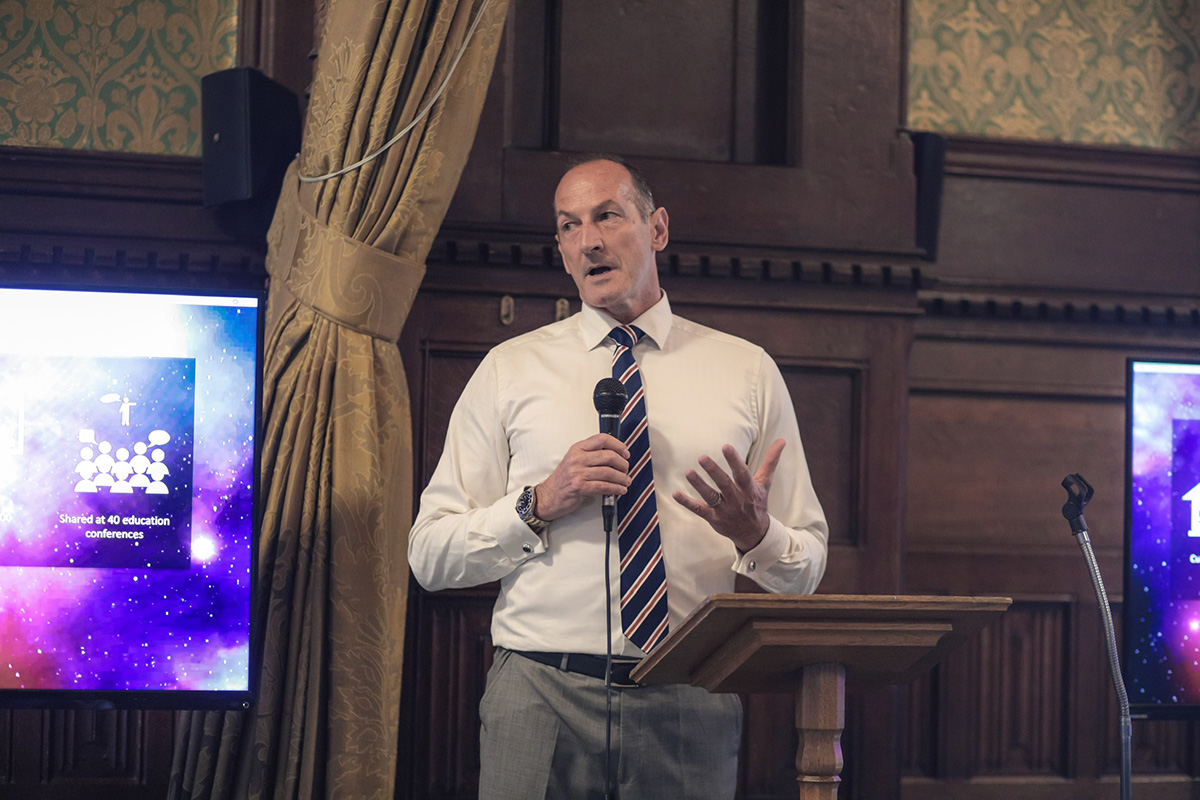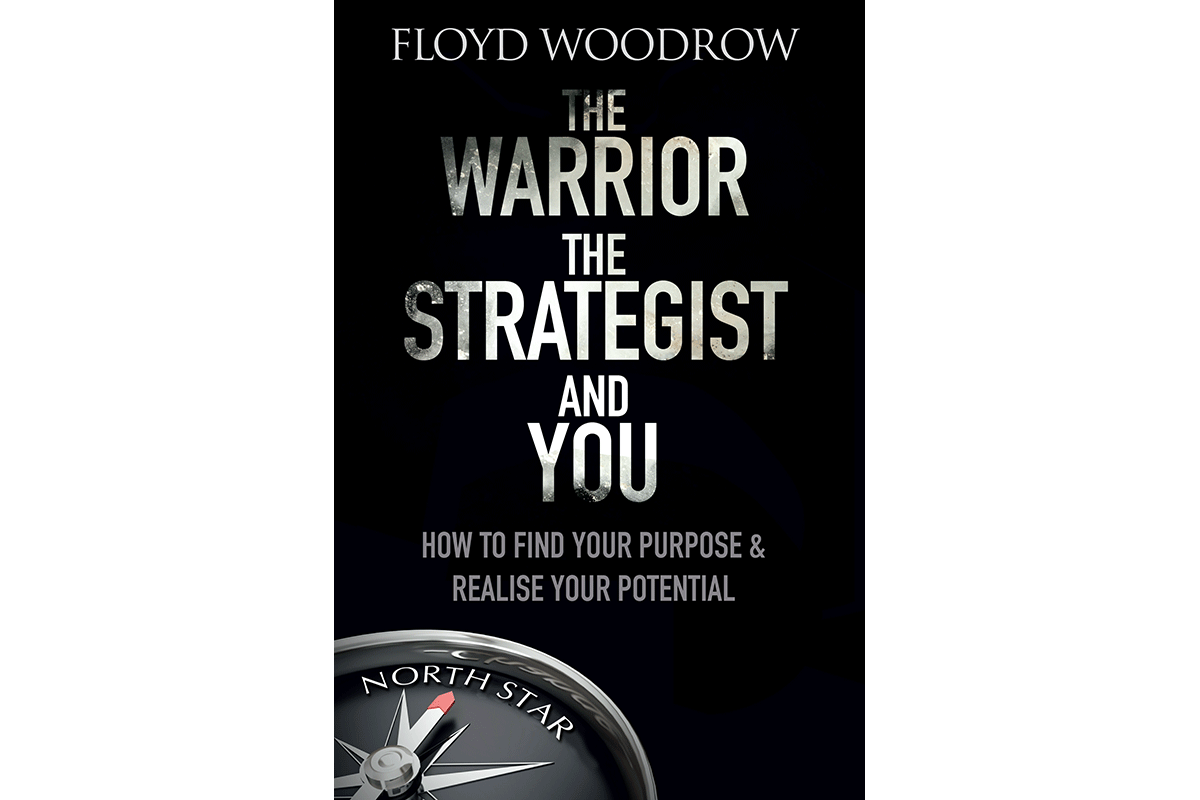This website uses cookies so that we can provide you with the best user experience possible. Cookie information is stored in your browser and performs functions such as recognising you when you return to our website and helping our team to understand which sections of the website you find most interesting and useful.
The leadership tips to keep motivation high through times of crisis and concern
By Floyd Woodrow | 15 April 2020
Compass for Life founder Floyd Woodrow shares his advice to maintain strong and empathetic leadership

In times of crisis and concern, strong and empathetic leadership is more crucial than ever. Compass For Life founder and Tempus chairman Floyd Woodrow shares how to keep motivation high for you, your family and your team
As the UK went into lockdown in March to battle the spread of Covid-19, Chancellor of the Exchequer Rishi Sunak spoke of the need for leaders to be more empathetic. Speaking directly to businesses, he said: “The government is doing its best to stand behind you and I’m asking you to do your best to stand behind our workers… When this is over, and it will be over, we want to look back at this moment and remember the many small acts of kindness done by us and to us. We want to look back on this time and remember how we thought first of others, and acted with decency.”
I’ve been fascinated with leadership for many years, first in my military career – where I spent 24 years in the SAS – and then as an entrepreneur, negotiator, and business coach. My experience with people I’ve met and worked with has led me to formulate what I believe is the key to great leadership, and I created the Compass For Life Foundation to teach this formula to disadvantaged children in the UK.
I believe leadership is about having sensitivity and empathy for yourself and others. We need to look after our own health but, as we now know, we must also have concern for others and understand their different needs. Our values need to be strong and positive to ensure our teams are aligned, with high levels of trust and accountability – especially as our offices are now remote. For this, we need a clear vision for all to align behind. We need a compass and map, so that we are creating our own future rather than finding ourselves stuck following a satnav.
My method is designed for CEOs of FTSE 100 companies and primary schoolchildren alike. Your compass begins with your Super North Star – your absolute goal. East is your Ethos: the values, rapport, resilience and culture that will inspire your team to journey with you. South stands for Strategy – what steps do you need to take to reach your goals – and, finally, West is your Warrior, and how you plan to be strong enough to fight for them.
In difficult times, it can seem like reaching your Super North Star is impossible but, in fact, in crisis there is opportunity. The ability to adapt, re-evaluate and communicate – whether that’s with your colleagues or your loved ones – is crucial, and though an adjustment period is to be expected in times of great change, as we have seen in 2020, there are surefire ways to continue to hone your team in tough environments.
Here, I share advice from my book, The Warrior, The Strategist and You, to help you stay the course and achieve your ultimate goal.
NORTH STAR | PURPOSE AND MOTIVATION
To really understand our true potential, we need to determine what our strengths and weaknesses are. It’s important to concentrate on our super-strengths as they are key to success and most likely what we are passionate about. Life is a journey; it is about adventures and experiences, so we can find out what we love in life. Big dreams should be a little bit scary. It’s important to make sure particular weaknesses aren’t holding us back and limiting our development.
I’ve found the best way to deal with these is to identify and improve one weakness at a time. We have to keep pushing ourselves to succeed, to reach our potential and make sure we’re not becoming complacent. It’s all about staying positive, remembering that we are all working towards something to help us grow as individuals. It’s important to set tough goals, but also to break them down into small, manageable steps so that we can chart our progress and feel like we’re getting somewhere. >>
Related: Pride of lions: Cricket Performance Director Mo Bobat shares what it takes to compete on the world stage

ETHOS | VALUES UNDER PRESSURE
When our values are firmly in place, they are unmovable, no matter the adversity. This ensures we do not lose sight of what is actually important in life, even if we are presented with an easier path to take, or if it seems that an alternative path is the most practical or even the only option. Ultimately, only we decide whether we’re willing to compromise our values or not, and for that we need courage.
It’s not only individual ethos that is important, but the ethos of any groups that we are part of. Understanding other people’s ethos helps me understand what makes my team members tick, and how we can work together on agreed set of values. The bedrock of any team is the behaviours we adopt and demand of one another when we are under pressure.
STRATEGY | COMMUNICATION AND NEGOTIATION
There are many variables in life and we need to be prepared for all or some of those things to change, then adapt our plans accordingly. One SAS technique that any of us can apply to our strategy is visualising each step and milestone of our journey; accounting for all obstacles and contingencies we can think of; making sure the skills we will need are well-practised; and discussing with our team to make sure everyone is heading in the same direction.
Once we have our plan, communicating it effectively is key. Good communication allows us to build foundations of trust and teamwork, and to be creative and convey messages that are difficult. From there comes the ability to influence, persuade and problem-solve together. This is where we can lead without having to assert our authority, which is, in my opinion, the highest form of communication.
WARRIOR | HEALTH AND FITNESS
Fitness is a fundamental discipline. Not just from the obvious point of being fit and healthy to do the job, but because we think more effectively and make better decisions for longer periods of time – especially when under pressure. It’s not about physical perfection, it’s about our personal wellbeing.
What helps us maintain our discipline, more than physical strength, is mental strength. Having a positive internal voice is essential. The objective of training is to get our mind and body into the perfect performance state, by ensuring we have the skills to perform under pressure. Once we have both physical and mental strength, it allows us to access something that is key to the warrior: intuition.
LEADERSHIP AND TEAMWORK
Successful people who operate alone are a very rare commodity indeed. Any person who wishes to fulfil their purpose will need a team around them, a support network, whether that’s friends, family or colleagues. How we choose to interact with that team or our support network is key. When I first decided to leave the SAS and make my first foray into business, I made a mistake I now teach others not to, which was failing to tell the people closest to me what my purpose was so that they could support me.
Leadership is a key part of success. In most teams, we will need to learn both how to lead and how to follow. There are certain traits we need to be effective, which make people want to follow us, and which brings out the best in their performances. These include communication, knowledge, discipline, courage, listening, remaining calm and commitment.
With good leadership and a cohesive team working together as a unit – with a purpose and agreed ethos, well planned strategy and a combined warrior spirit – we can achieve higher standards and performance. It means that, even on our worst day, we will be difficult to beat.
To learn more or join Compass For Life’s upcoming webinars, follow @compassforlifefoundation and @floydwoodrow on Twitter
‘The Warrior, The Strategist and You’ is available from floydwoodrow.com







